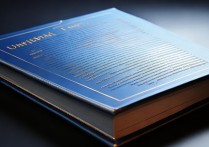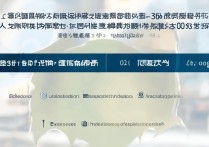百年孤独读后感英文
The Essence of Solitude: Reflections on One Hundred Years of Solitude
I. Narrative Structure and Language Style
The novel opens with the iconic line: “Many years later, as he faced the firing squad, Colonel Aureliano Buendía was to remember that distant afternoon when his father took him to discover ice.” This chronological leap immediately establishes a nonlinear framework that weaves past, present, and future into a tapestry of cyclical destiny. García Márquez employs magical realism—a blend of hyperbolic metaphors (e.g., rain lasting four years) and supernatural elements (like Remedios ascending to heaven) alongside historical events—to mirror Latin America’s turbulent history under colonialism, civil wars, and foreign intervention. The repetition of names across generations emphasizes genetic curses and cultural stagnation, while the family tree becomes a metaphor for societal decay. For instance, José Arcadio’s obsession with science parallels Colombia’s modernization attempts, yet his madness symbolizes failed progress.
| Symbolic Device | Interpretation |
|---|---|
| Recurring Names | Genetic/cultural imprisonment; inescapability of fate |
| Melquíades’ Prophecy | Predestination vs. human agency (“The first man tied to a tree… ”) |
| Ants Devouring Baby | Closure of lineage; extinction as consequence of isolation |
II. Central Themes: Solitude as Both Prison and Lens
Solitude permeates every layer of existence in Macondo. It manifests physically (characters like Colonel Aureliano secluding himself while crafting goldfish), emotionally (Úrsula’s futile efforts to unite her fractured family), and politically (Latin America’s marginalization from global community). The Buendías’ lack of communication—husbands ignoring wives, siblings competing violently—mirrors broader societal fragmentation under authoritarian regimes. Notably, amorous passion often exacerbates isolation: Amaranta’s self-imposed chastity after poisoning her rival reveals how desire can become self-destructive when severed from connection. Even collective endeavors fail due to distrust; thus, solitude emerges not merely as absence but as an active force shaping identity. As one reviewer observed: “Loneliness here is not just personal but systemic—a product of historical trauma.”
III. Cultural Critique: History’s Ghosts
Macondo’s evolution—from utopian founding by José y Úrsula to its erasure by hurricanes—parallels Colombia’s struggles with neocolonialism, dictatorship, and civil strife. The town’s brief prosperity under banana plantation interests collapses into massacre (echoing real-life events like La Violencia), exposing capitalism’s exploitative nature. García Márquez critiques cycles of violence through military interventions (Aureliano’s failed rebellions) and foreign manipulation (American fruit companies replacing local governance). Yet hope flickers faintly: Memories preserved by Melquíades’ parchments suggest historical awareness could break repetition if properly engaged. This duality—damnation with faint redemption—defines the novel’s tragic vision.
IV. Personal Resonance: Human Universality
Beyond regional specifics lies universal truth about existence. Each character grapples existentially: Rebekah finding solace only in baking cookies obsessively; Arcadio II ruling tyrannically then dying absurdly. Their flaws feel intimately recognizable—ambition curdling into madness, love twisting into possession. As readers traverse seven generations, we see ourselves reflected in their yearning for meaning amid chaos. The final image of Antonia (with pigtail!) being consumed by termites crystallizes life’s fragility against time’s relentless march. Herein lies the book’s power: making the exotic familiar, transforming myth into mirror.
Q&A Section
Question 1: Why does García Márquez use recurring names for different generations?
Answer: To symbolize cyclical fate and collective memory—highlighting how history repeats itself until broken free (as seen in Latin America’s recurring political patterns). It also blurs individual identity, stressing shared familial/cultural burdens.
Question 2: What does the disappearance of Macondo signify?
Answer: It represents both literal extinction (of the Buendía lineage) and metaphorical erasure of marginalized cultures swallowed by imperialism/globalization. Yet its destruction clears space for potential renewal—a subtle call to rebuild without repeating past errors.
This work ultimately challenges readers to confront whether solitude is imposed by circumstance or chosen as refuge—and whether either can
版权声明:本文由 数字独教育 发布,如需转载请注明出处。














 冀ICP备2021017634号-12
冀ICP备2021017634号-12
 冀公网安备13062802000114号
冀公网安备13062802000114号